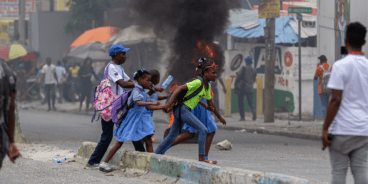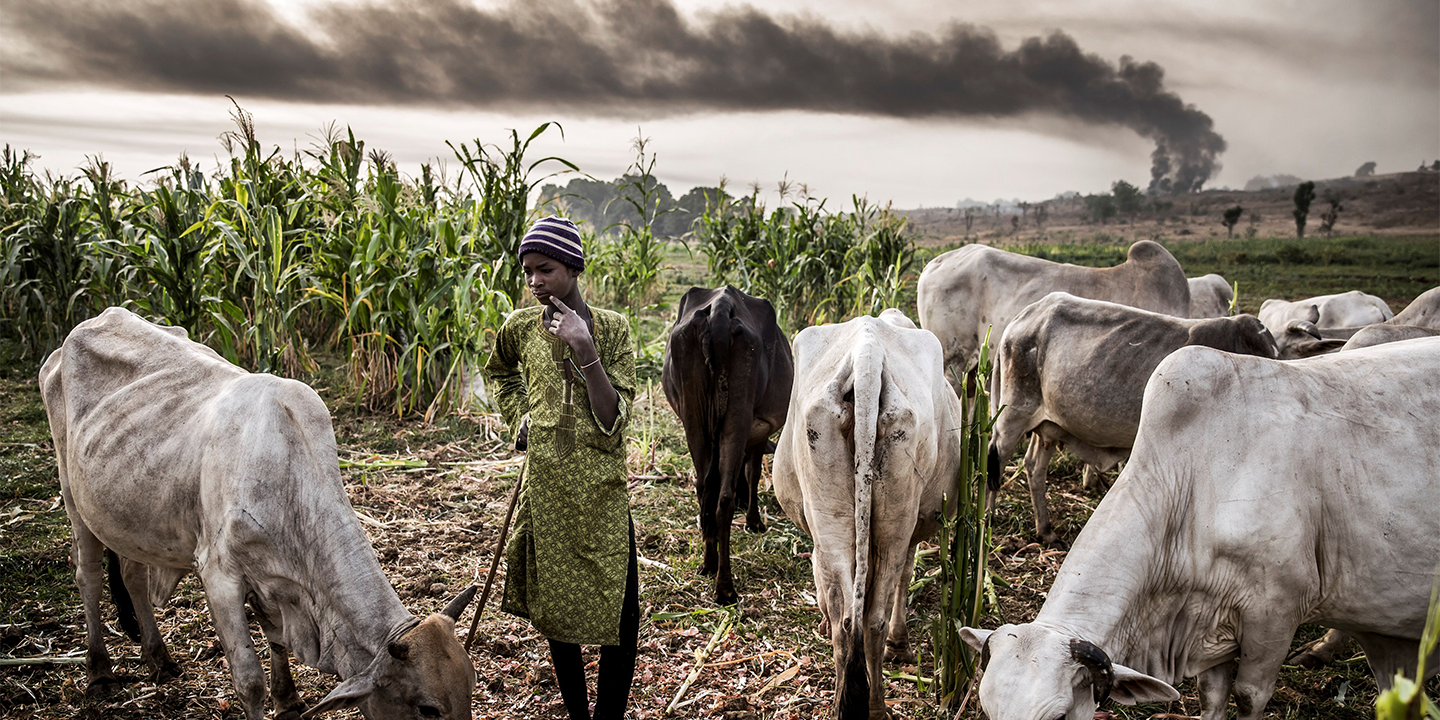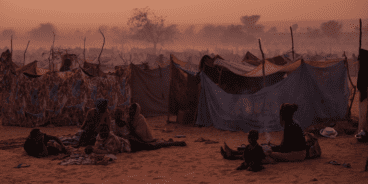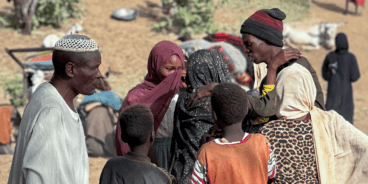

Atrocity Alert No. 334: Nigeria, Philippines and Wagner Group
Atrocity Alert is a weekly publication by the Global Centre for the Responsibility to Protect highlighting situations where populations are at risk of, or are enduring, mass atrocity crimes.
UPCOMING ELECTIONS IN NIGERIA MARKED BY INSECURITY AND VIOLENCE
In two weeks, on 25 February, Nigeria will hold general elections. Although the elections are taking place as the country confronts multiple security threats, the Independent National Electoral Commission (INEC) has said voting will be held across the country, including in affected areas. Preparations for the elections have been marred by an increase in violence, with the Armed Conflict Location and Event Data Project recording more than 134 incidents involving attacks on INEC’s offices and staff since the last elections in 2019. On 2 February the UN Special Adviser on the Prevention of Genocide, Alice Nderitu, warned that “in this extremely volatile environment, it is important that the general elections […] do not trigger violence and even atrocity crimes.”
Among the multiple security threats affecting populations in the country are attacks by armed bandits, particularly in north-west and north-central Nigeria. On 2 February at least 41 people were killed in armed clashes between bandits and local vigilantes in Bakori local government area, Katsina State. Many of the armed bandit groups have been formed in the past decade in response to growing competition over land and resources. While these groups are driven largely by criminal motives, ethnic tensions have been exacerbated as many bandits are ethnic Fulani and prey on settled farming communities, sometimes resulting in deadly violence.
In an attempt to curb the activities of armed bandits, the government has designated these groups as “terrorists” and intensified its military operations in affected areas, including through airstrikes where such groups operate. The Nigerian military has a history of using excessive and deadly force against civilians during counterterrorism operations, which has at times resulted in reprisal attacks against civilian populations. On 24 January a military airstrike resulted in the killing of at least 40 civilians predominantly from the Fulani community. In December a similar airstrike targeting so-called armed bandits in Zamfara State reportedly killed at least 64 civilians. In her 2 February statement, Special Adviser Nderitu condemned the indiscriminate targeting of civilians and stressed that the airstrikes and the “dynamics of targeting communities along identity lines, if unaddressed, risk further fueling intercommunal tensions, recruitment by armed groups and retaliatory attacks, with obvious impact on civilians.”
Despite multiple security risks, the Nigerian government needs to ensure free, fair, transparent and credible elections. Prompt investigations and prosecution of people involved in election violence should be pursued. The Nigerian government also needs to urgently reform the security sector, including by incorporating international humanitarian and human rights law into all military and police training. While the lack of adequate military protection for vulnerable populations needs to be urgently addressed, the government must invest in social initiatives and political reforms that confront the root causes of conflict alongside a military strategy to combat insecurity.
ICC RESUMES INVESTIGATION INTO ALLEGED CRIMES AGAINST HUMANITY IN THE PHILIPPINES
On 26 January the International Criminal Court’s (ICC) Pre-Trial Chamber I authorized the Chief Prosecutor to resume its investigation into possible crimes against humanity committed in the Philippines during former President Rodrigo Duterte’s so-called “war on drugs.” In November 2021 the Philippine government requested a deferral of the ICC’s investigation to give domestic courts time to investigate the alleged crimes. According to the statement from the ICC, “the various domestic initiatives and proceedings, assessed collectively, do not amount to tangible, concrete and progressive investigative steps” that would warrant a deferral of the Court’s investigation.
The ICC’s investigation covers abuses from November 2011, when Duterte was then mayor of Davao City, until the ICC’s jurisdiction in the Philippines ended when the country withdrew from the Rome Statute on 16 March 2019. During his term as President, Duterte – who took office in June 2016 – launched a so-called “war on drugs” during which he repeatedly declared his willingness to “slaughter” millions of suspected drug abusers while continuously making public calls for law enforcement to shoot and kill alleged criminals. According to a June 2020 report by the Office of the UN High Commissioner for Human Rights, at least 8,660 people were killed in police operations and by unidentified gunman carrying out vigilante-style executions of alleged drug offenders, with thousands of deaths still under investigation. Philippine human rights organizations indicate the number could be more than triple the official figure.
Although the majority of deaths took place between 2016-2018, the police and armed vigilantes continue to perpetrate extrajudicial killings of those perceived to be involved in illicit drug activity, including since President Ferdinand Marcos Jr. took office in June 2022. The University of the Philippines’ Dahas program, which monitors reported drug-related killings, documented 324 people killed in drug-related incidents during 2022, including 175 in the first six months that President Marcos Jr. was in power.
The UN High Commissioner for Human Rights – mandated by the Human Rights Council (HRC) to report on the human rights situation in the Philippines from July 2019 to October 2022 – found that the government had perpetrated systematic and long-standing human rights abuses, including killings and arbitrary detentions during the so-called “war on drugs.” Despite this, the HRC allowed this reporting mandate to expire in October. Executive Director of the Global Centre for the Responsibility to Protect, Savita Pawnday, said, “While we welcome the ICC’s resumption of its investigation into the ‘drug war’ killings, rights violations have continued and are now out of the Court’s jurisdiction. We call on HRC member states to recommit to monitoring the crisis in the Philippines so that victims may one day see justice.”
GROWING EVIDENCE OF ATROCITIES PERPETRATED BY WAGNER MERCENARIES
Mercenaries from the Russian private military company known as the “Wagner Group” have perpetrated possible war crimes and crimes against humanity alongside Malian Armed Forces (FAMa) since 2021, according to a group of UN independent experts. The experts issued a statement on 31 January calling for an independent investigation into “persistent and alarming” abuses, including executions, mass graves, acts of torture, rape and sexual violence, pillaging, arbitrary detentions and enforced disappearances. Wagner mercenaries have primarily targeted civilians, particularly from the ethnic Fulani minority, and played a fundamental role in the increase in civilian deaths since their deployment to Mali in December 2021. The experts said they received credible reports of suspected Russian mercenaries, alongside FAMa, executing an estimated 300 Fulani civilians in March 2022 in Moura.
In recent decades there has been an increasing reliance on private military companies in conflict zones around the world, which has been accompanied by concerns about violations of International Humanitarian Law (IHL) and International Human Rights Law (IHRL). The UN and human rights groups have documented growing evidence of atrocities perpetrated by Wagner operatives in recent years, including in the Central African Republic (CAR), Libya, Mozambique, Syria and Ukraine. Wagner operatives were first deployed when Russia annexed the Crimean Peninsula in March 2014. Thousands of fighters have been sent to bolster Russian troops in eastern Ukraine since the February 2022 invasion. In Libya, the UN Human Rights Council-mandated Fact-Finding Mission on Libya has alleged that war crimes and crimes against humanity have been committed since 2016 by Wagner, including killings and placing landmines in civilian areas.
The experts emphasized that the use of mercenaries and private military companies exacerbates cycles of violence and impunity, stating, “The lack of transparency and ambiguity over the legal status of the Wagner Group, combined with reprisals against those daring to speak out, create an overall climate of terror and complete impunity for victims of the Wagner Group’s abuses.” The UN Independent Expert on the situation of human rights in CAR has accused Russian-linked forces of “systematically hindering the work of [UN] investigators” in areas where alleged crimes have occurred. Many victims also face challenges in accessing justice and remedy for the human rights abuses.
It is imperative that all forces uphold their responsibility to protect vulnerable civilians, including operating in accordance with applicable IHL and IHRL. States should sign the Montreux Document, join the International Code of Conduct for Private Security Service Providers and adhere to their principles. UN entities should strengthen the Human Rights Due Diligence Policy to prevent civilian harm that could result from UN support to national security forces operating alongside or through private military companies. All individuals involved in atrocity crimes should be held legally accountable.
Related Content


Twenty years of the Responsibility to Protect and the unfulfilled promise in Darfur
